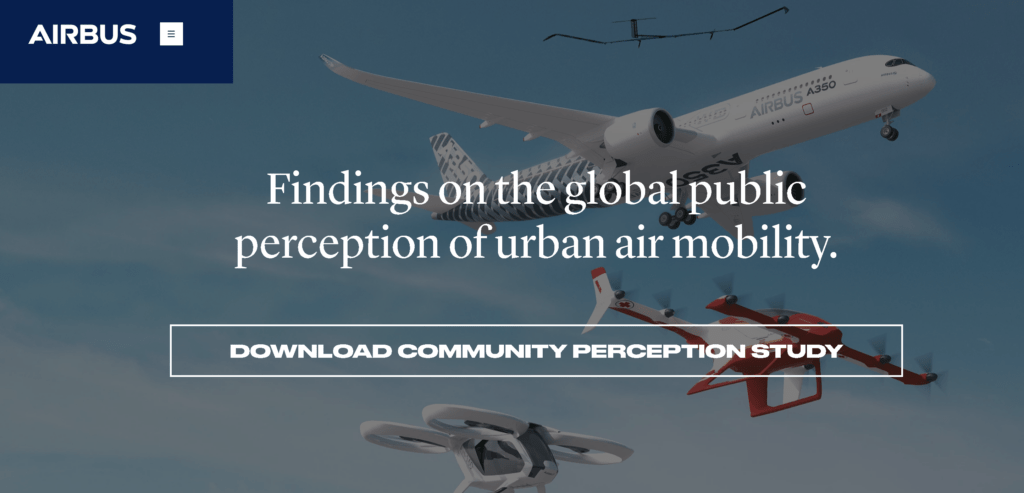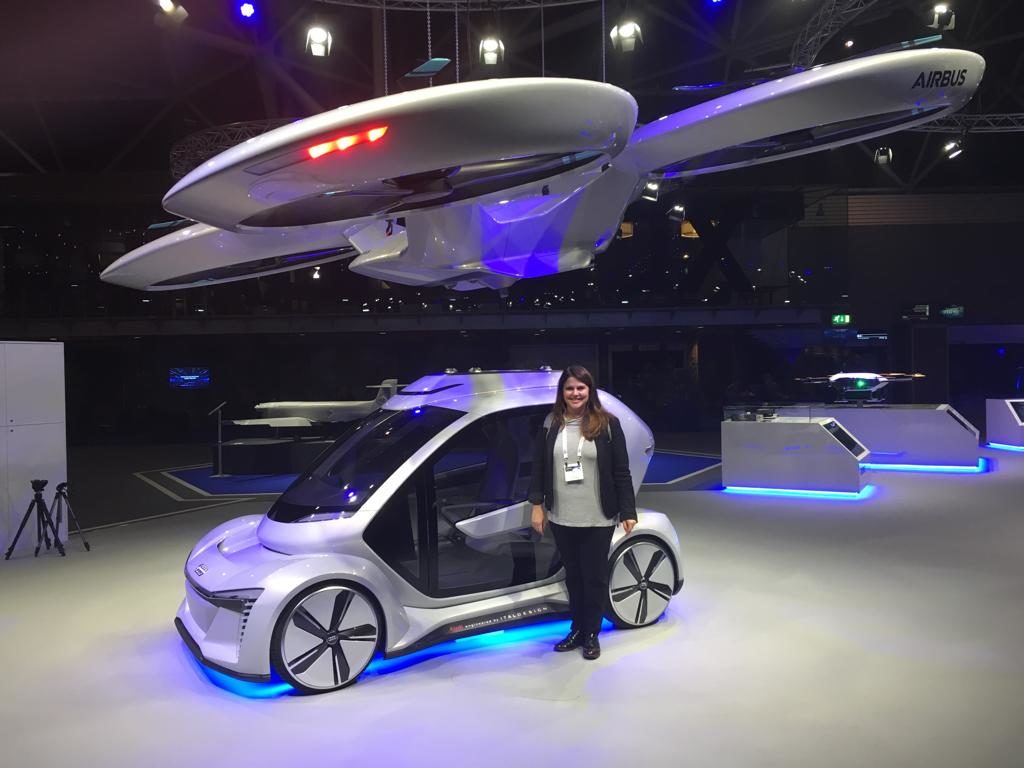Airbus – one of several players in the race to make Urban Air Mobility (UAM) a reality – has delved into how open the public is to the idea of getting from A to B using unmanned aircraft.
The report can be read in full, here.

The study’s headlines are fairly positive. The researchers put questions to respondents in four locations around the world: Los Angeles, Mexico City, Switzerland, New Zealand. All have issues with road traffic congestion, liberal approaches to technological innovation or a combination of the two.
The aim of the study was to explore the perception around UAM and find out about the public’s major concerns and attitudes towards futuristic methods of transportation.
A total of 1,540 responses were collected.
Communities are most concerned about safety (55.6%), the type of sound generated by UAM (49.3%), and the volume of that sound (48.8%). Drones already have a reputation for high-pitched whining, it would seem. Nobody wants that to become a permanent fixture of their daily lives. Respondents also had concerns about the time of day UAM vehicles would be flown (47.8%) and the altitude at which they will fly (47.8%).
Of least concern is arguably the most significant of infrastructure problems: the landing spot of the
aircraft (41.2%).
Importantly, Airbus says that 44.5% of all respondents’ initial reactions to UAM is in support or strong support. 41.4% of all respondents believe UAM is would either be safe or very safe.
We stand at a thrilling point in the history of aviation. The skies are busier than ever, and Airbus is one of the world’s largest manufacturers of commercial aircraft, helicopters, military jets, rockets, drones, and spacecraft, among others. Our industry’s prospects for the future are exciting, with current air traffic—that is, commercial and cargo flights and helicopters— having quadrupled in the last 30 years, and set to double in the next 15 [1]. Soon there will be an estimated 25,000 human-piloted flights in the air at any given moment [2]. Nobody would have imagined that future a century ago.
But there is another change on the horizon. An entirely new category of airspace user is on the rise, with self and remotely-piloted aircraft developing rapidly. Soon, autonomous aircraft will be transporting people and goods all around the world.” – Tom Enders, Airbus CEO.
Read more: Audi and Airbus Show off Modular Drone Taxi in Amsterdam (and it’s Awesome)
The Preliminary Community Perception Study was released by Airbus UTM, an internal group designing digital traffic management systems that could help new aircraft to safely integrate into our future skies.

Designing future transport with public opinion in mind
“As conversations progress around the world concerning the future of our airspace, Airbus UTM continues to be a leader in researching and designing the infrastructure that will allow for the safe advancement of this field,” said Isabel Del Pozo De Poza, Head of Airspace Management, Airbus UTM.
“We want to ensure our communities are educated on UAM and that experts in the industry keep their opinions top of mind when designing alternative transportation systems of the future.”
Getting into the finer details of the research, some additional findings – broken down by demographic – highlight some interesting perceptions by location and age:
- 67 percent of respondents living in Mexico City are likely or very likely to use UAM
- 46 percent of respondents living in Los Angeles are likely or very likely to use UAM
- Those respondents most likely to use UAM have an average commute time of 25 minutes, compared to the group least likely to use UAM whose average commute time is 19 minutes
- The 25-34 age range has the most positive initial reaction, with 55 percent viewing UAM positively, compared to the 75-84 age range with the least positive initial reaction, with 15 percent viewing it negatively
“While UAM has made great strides with key stakeholders, the public acceptance of the world’s communities is vital to the growth and pace of future adoption,” said Jessie Mooberry, Head of Deployment at Airbus UTM.
“We are actively looking to bring the voices of these citizens to the table as evidenced by ongoing work such as these surveys to involve all interested parties to join us in creating this mobile future. We look forward to further tapping these communities as we inform our further work in the field.”
Read more: 25 days, 23 hours, 57 minutes: Airbus’ Solar-Powered Drone Completes Record Maiden Flight
Malek Murison is a freelance writer and editor with a passion for tech trends and innovation. He handles product reviews, major releases and keeps an eye on the enthusiast market for DroneLife.
Email Malek
Twitter:@malekmurison
Subscribe to DroneLife here.







[…] and Airbus signed an MOU in June 2018 to develop shore-to-ship drone delivery […]